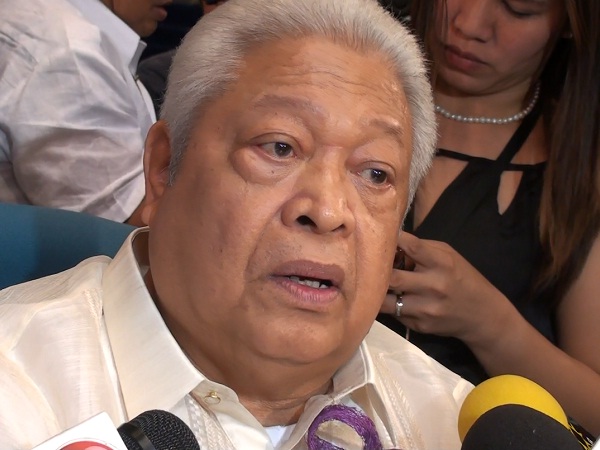Lagman: Rome Statute overrules PH law

Albay Rep. Edcel Lagman. INQUIRER.NET FILE / RYAN LEAGOGO
An opposition lawmaker said an international treaty takes precedence over Philippine laws as he branded as “grossly incorrect” the declaration of President Rodrigo Duterte’s that the Rome Statute of the International Criminal Court (ICC) was not effective because it was not published in the Official Gazette.
Duterte earlier said that the treaty, entered to by the Philippines on Aug. 23, 2011, was neither “effective nor enforceable” in the country because it was not published locally.
READ: Duterte does the inevitable, withdraws PH from ICC treaty
Albay 1st District Rep. Edcel Lagman, a member of the so-called “House Magnificent 7” opposition bloc, on Tuesday said this rule under Article 2 of the Civil Code, “does not cover international covenants to which the Philippines is a State Party.”
Lagman issued a statement Tuesday titled “Effectivity Clause of Rome Statute Prevails Over the Civil Code.”
Article continues after this advertisementArticle 2 of the Civil Code states that “laws shall take effect after 15 days following the completion of their publication in the Official Gazette” or the alternative publication in a newspaper of general circulation under Executive Order No. 200 dated June 18, 1987, refers to the effectivity of laws or statutes enacted by the Congress.
Article continues after this advertisementFor his part, Presidential Spokesperson Harry Roque, an international law expert, said the Rome Statute was a “penal law” which the Supreme Court ruled needed publication in the Official Gazette.
He cited the SC 1985 decision in the case of Tañada vs Tuvera, where the High Court ruled that “publication in the Official Gazette is necessary in those cases where the legislation itself does not provide for its effectivity date.”
In his statement, Lagman said, “International instruments like the Rome Statute have their own effectivity clauses which the ratifying country has prior knowledge of.”
The lawmaker said under Article 126 of the Rome Statute in relation to Article 125, the ratification by the Philippines became effective or entered “into force on the 1st day of the month after the 60th day following the deposit” of such instrument of ratification with the Secretary-General of the United Nations (UN).
Last March 14, Duterte announced the country’s withdrawal from the treaty citing a “concerted effort” between the UN special rapporteurs and the ICC special prosecutor to paint him as a “ruthless and heartless violator of human rights who allegedly caused thousands of extrajudicial killing.”
READ: Palace accuses ICC of politicizing Duterte
In February, the ICC launched a preliminary examination into Duterte’s bloody war on drugs, which was criticized to have killed thousands of suspected drug criminals and have stemmed to alleged extrajudicial killings.
ACT Teachers Rep. Antonio Tinio had warned that Duterte “won’t save himself” from the investigation of the international court even after he declared the Philippine’s withdrawal from the agreement. /cbb